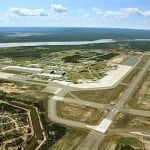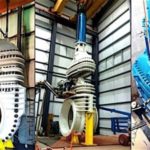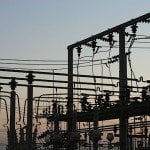The province of Ontario intends to participate in the National Energy Board hearings concerning an oil pipeline that runs through the Greater Toronto Area. The province’s minister of energy and infrastructure, Bob Chiarelli, said that the province would apply for intervenor status at the hearings.
The pipeline in question, which belongs to Enbridge, has been in place since the 1970s, running between Sarnia and Montreal. It originally carried oil from east to west, but Enbridge received permission in 2012 to reverse the flow of a section of the line so that it now flows west to east. Enbridge now wants to reverse the flow on the entire line, as well as increase the flow from 240,000 to 300,000 barrels per day. The line would thus carry western oil to Quebec refineries, which currently depend on more expensive foreign oil. According to Enbridge, most of the oil flowing through the pipeline is conventional crude, not diluted bitumen from the Alberta oil sands.
In Toronto, the pipeline crosses the city and all the rivers within it, running along a hydro right of way along Finch Avenue. Chiarelli said that environmental concerns surrounding the pipeline make it a “serious issue” for the province and for the people who might be affected, including First Nations people.
Opposition politicians have complained that the federal government has made it more difficult for interested parties to speak at regulatory hearings. Only “experts” and those who could be directly affected by a pipeline’s construction are now permitted to submit written opinions or testify at hearings. This makes it all the more important that the province exercise its rights to participate in those hearings, they say. Some have called for Ontario to undertake its own independent environmental assessment of the Enbridge proposal. Reversing the flow of a pipeline, especially one that is aging, as well as increasing its capacity, could put new stresses on the line, according to a Toronto area NDP MPP, Peter Tabuns.
“I have no interest in Toronto finding out where the weaknesses are by a huge spill on Etobicoke Creek or (the) Humber or Don (Rivers),” he said in the Toronto Star.
The city of Toronto has also indicated that it wants to participate in the hearings, which are expected to be held in August.

































